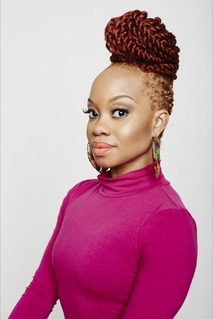A Quote by Randall Jarrell
We read our mail and counted up our missions In bombers named for girls, we burned The cities we had learned about in school Till our lives wore out; our bodies lay among The people we had killed and never seen. When we lasted long enough they gave us medals; When we died they said, "Our casualties were low." They said, "Here are the maps"; we burned the cities.
Related Quotes
Late one afternoon when returning from town we were met by a few women and children who told us that Mexican troops from some other town had attacked our camp, killed all the warriors of the guard, captured all our ponies, secured our arms, destroyed our supplies, and killed many of our women and children.. when all were counted, I found that my aged mother, my young wife, and my three small children were among the slain.
Our prime minister could embrace and forgive the people who killed our beloved sons and fathers, and so he should, but he could not, would not, apologise to the Aboriginal people for 200 years of murder and abuse. The battle against the Turks, he said in Gallipoli, was our history, our tradition. The war against the Aboriginals, he had already said at home, had happened long ago. The battle had made us; the war that won the continent was best forgotten
Our soldiers in another area were attacked chemically. Our soldiers - they went to the hospital as casualties because of chemical weapons, but in the area where they said the government used chemical weapons, we only had video and we only have pictures and allegations. We're not there ; our forces, our police, our institutions don't exist there. How can you talk about what happened if you don't have evidence ?
I existed before Star Trek. I started in live television. I was there when the cameras were as big as a table, had internal fans that were whirring and tubes that, because of the heat, had to come right up to our face for a close-up. Now, we are talking about green screen and putting us in locations that we'll never visit. What has happened to us is a miracle, and the miracle is our inventiveness. The tragedy of our lives is also our inventiveness.
Haven't we all grown up trusting high street banks? Their branches were fixtures, not only in our towns and cities, but in the way our lives ran. Yet it is no exaggeration to say that thousands, possibly millions of us, instead of being helped have found our lives permanently damaged by the toxic U.K. financial system.
The arts have long been an integral and vibrant part of our nation's cultural heritage. In its many forms, art enables us to gain a deeper understanding of ourselves and of our society. Providing us with a unique way to learn about people of other cultures, it allows us to discover all that we have in common. At its best, art can beautify our cities, encourage economic development and social change, and profoundly affect the ways we live our lives.
When we are old and these rejoicing veins
Are frosty channels to a muted stream,
And out of all our burning there remains
No feeblest spark to fire us, even in dream,
This be our solace: that it was not said
When we were young and warm and in our prime,
Upon our couch we lay as lie the dead,
Sleeping away the unreturning time.
We fight for territory. We see it in our Congress, we see it in our political systems, we see it in our ways of life, how separated we are. When we moved out of the cities and we lost all of the memory that was in cities, and we - one of the highest achievements in our culture is to be able to segregate yourself from everyone else, and the deep thing is the deepest punishment is solitary confinement.
I think a lot of times when people hear the word dance, they think 'oh, that's something that I can't do.' But dance really lives in our bodies and the thing that I've come to learn, embrace and lift up is that we have history in our bodies that's living and breathing. We have our own individual history but we also have our heritage. Each one of us has our movement language and it's about tapping into that and pulling that out. That's the thing that I try to encourage everybody because it's not about dance, it's about the movement and the gesture and how we honor it.







































